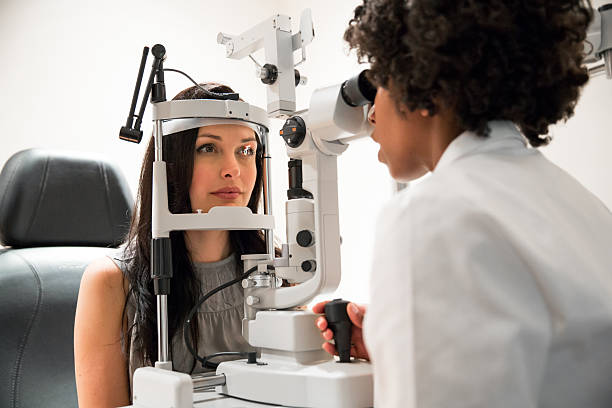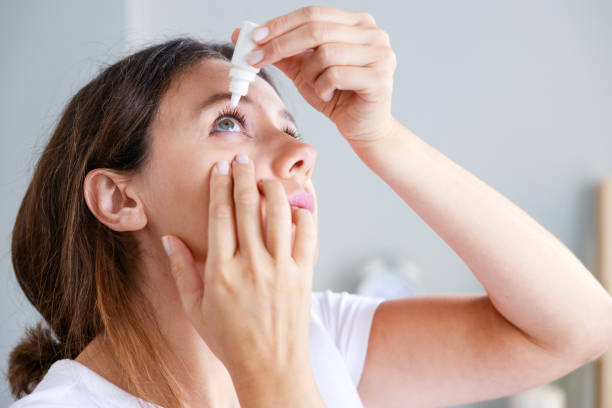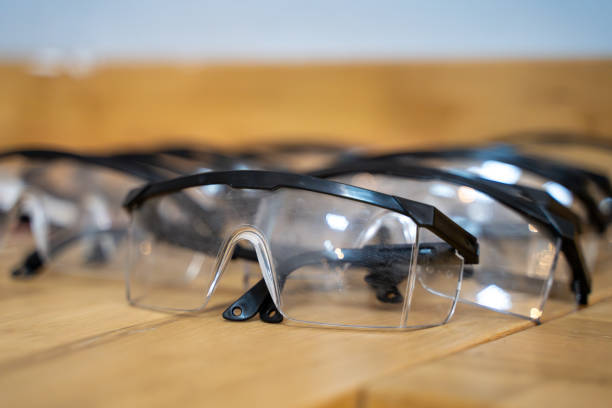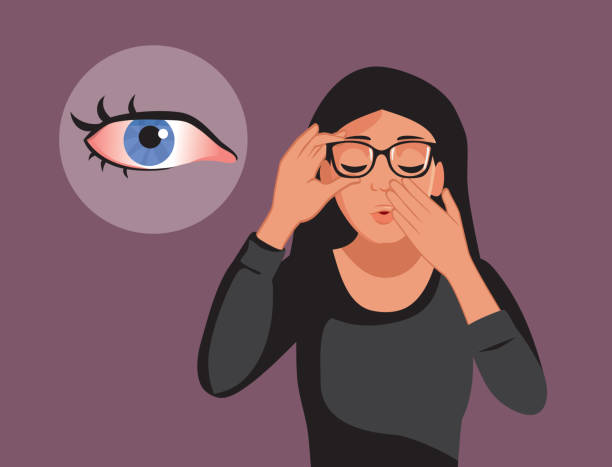Keeping your vision clear and healthy is easy to overlook—until something goes wrong. Many people take their eyesight for granted, but your eyes need daily care just like the rest of your body. Whether it’s eating the right foods, getting enough sleep, or protecting your eyes from strain, small habits can make a big difference. Without proper care, even simple mistakes can add up and lead to long-term vision problems that are harder to fix later on.
In this post, we’ll break down some of the most common eye care mistakes that people make every day—often without even realizing it. We’ll explain how these habits can harm your vision over time and offer simple, practical tips to help you avoid them. With the right care, you can protect your eyesight and enjoy clear, healthy vision well into the future. Let’s take the steps now to keep your eyes sharp, strong, and working their best for years to come!
Why Eye Health Matters
Your eyes do more than just help you see—they help you fully experience the world around you. Whether you’re reading a book, driving to work, watching your kids play, or enjoying a sunset, healthy vision makes these moments clear and meaningful. Good eyesight helps you stay safe, focused, and connected to the people and things you love. But many people don’t realize how important eye care is until it’s too late. According to the Centers for Disease Control and Prevention (CDC), millions of Americans live with vision loss that could have been prevented with regular eye exams and simple daily care.
Let’s dive into the eye health mistakes that many people unknowingly make—and how to avoid them.

1. Skipping Regular Eye Exams
Why It’s a Mistake
Many people wait to see an eye doctor until they have a problem. But regular eye exams are one of the best ways to catch vision issues early—often before you notice any symptoms. These exams don’t just check how well you can see. They also help spot serious eye conditions like glaucoma, cataracts, and macular degeneration. These diseases can lead to permanent vision loss if they aren’t treated in time. Seeing an eye doctor regularly gives you a better chance to protect your eyesight and stay ahead of potential problems.
What You Should Do
- Schedule an eye exam every 1–2 years, even if you have no symptoms.
- If you wear glasses or contacts, go yearly to check your prescription.
- Children and older adults may need more frequent checkups.
Need help finding a specialist? The American Academy of Ophthalmology offers resources to locate a qualified provider near you.
2. Rubbing Your Eyes
Why It’s a Mistake
Rubbing your eyes might seem harmless—especially when they feel itchy, dry, or tired—but it can actually do more harm than good. This common habit can spread dirt, bacteria, and allergens, leading to irritation or even infection. Over time, rubbing too hard or too often can damage the cornea, the clear front part of your eye. In some cases, it may increase the risk of developing keratoconus, a condition where the cornea thins and begins to bulge, causing blurry or distorted vision.
What You Should Do
- Use artificial tears or cool compresses if your eyes feel dry or itchy.
- Wash your hands often and avoid touching your face.
- If irritation persists, see an eye doctor instead of self-treating.
3. Sleeping with Makeup On
Why It’s a Mistake
Falling asleep with mascara or eyeliner still on might not seem like a big deal, but it can actually harm your eyes. When makeup stays on overnight, it can clog the tiny oil glands along your eyelids. This buildup can lead to irritation and increase your risk of eye infections like blepharitis, which causes redness and swelling, or conjunctivitis, also known as pink eye. Removing your makeup every night is a simple step that helps keep your eyes clean, healthy, and free from infection.
What You Should Do
- Always remove eye makeup before bed with a gentle remover.
- Clean brushes regularly to prevent bacteria buildup.
- Toss old makeup—mascara should be replaced every 3 months.
For more on safe makeup practices, check out The American Optometric Association’s guide.
4. Overusing Digital Screens Without Breaks
Why It’s a Mistake
Spending long hours staring at screens can lead to digital eye strain, also called computer vision syndrome. This condition is becoming more common as people use computers, tablets, and phones for work or entertainment. The symptoms can include dry or tired eyes, headaches, blurred vision, and even neck or shoulder pain. If left unaddressed, digital eye strain can affect your comfort and productivity throughout the day.
What You Should Do
- Follow the 20-20-20 Rule: Every 20 minutes, look at something 20 feet away for 20 seconds.
- Blink often to keep your eyes moist.
- Use blue light filters or screen glasses when working long hours.
According to Harvard Health, reducing blue light exposure in the evening can also improve sleep quality.
5. Not Wearing Sunglasses
Why It’s a Mistake
Just like your skin, your eyes are vulnerable to harmful UV radiation from the sun. Without proper protection, you increase your risk of developing serious eye conditions such as cataracts, macular degeneration, and even eye cancer. Long-term exposure to UV rays can gradually damage the delicate structures in your eyes, leading to vision problems later in life. Wearing sunglasses with UV protection is an easy and effective way to shield your eyes from these harmful rays.
What You Should Do
- Wear sunglasses that block 100% of UVA and UVB rays.
- Choose wraparound styles for extra coverage.
- Wear them even on cloudy days—UV rays can still penetrate.
Find more info from the Skin Cancer Foundation on how sunglasses protect your vision.

6. Using Expired or Shared Eye Drops
Why It’s a Mistake
Using old or shared eye drops can be harmful to your eyes, as they may contain bacteria or other irritants that can worsen your symptoms. Even if the drops are prescription-based, they can lose their effectiveness over time and may not work as well as they once did. To keep your eyes safe and ensure the best treatment, always use fresh, properly stored eye drops and avoid sharing them with others.
What You Should Do
- Always check expiration dates before use.
- Avoid touching the dropper tip to your eye.
- Don’t share eye drops with anyone.
7. Smoking and Eye Health
Why It’s a Mistake
Smoking is harmful to nearly every part of your body, and your eyes are no exception. It increases the risk of developing serious eye conditions, such as cataracts, optic nerve damage, and age-related macular degeneration (AMD)—one of the leading causes of vision loss in older adults. Over time, smoking can damage the blood vessels in your eyes, making it harder for them to stay healthy. Quitting smoking can significantly reduce these risks and help protect your vision as you age.
What You Should Do
- If you smoke, make a plan to quit. The CDC’s quit-smoking resources are a great place to start.
- Eat antioxidant-rich foods like leafy greens and fish to support your vision.
8. Poor Contact Lens Hygiene
Why It’s a Mistake
Poor contact lens habits, such as sleeping in your lenses or skipping important cleaning steps, can increase your risk of serious eye infections. These bad practices can lead to painful conditions like corneal ulcers, which are open sores on the cornea that can damage your vision. To keep your eyes healthy and avoid complications, always follow the proper cleaning and care instructions for your contact lenses and remove them before sleeping.
What You Should Do
- Wash hands before touching lenses.
- Use only the recommended cleaning solution.
- Replace lenses and cases as directed by your eye care provider.
9. Ignoring Dry Eye Symptoms
Why It’s a Mistake
Dry eyes are not only uncomfortable, but they can also lead to blurry vision, eye fatigue, and even long-term damage to the cornea if left untreated. When your eyes don’t produce enough tears or the tears evaporate too quickly, it can cause irritation and make it harder to focus. If dry eyes persist, the lack of proper moisture can result in more serious problems, including infections or corneal damage. Addressing dry eye symptoms early can help prevent further complications and keep your eyes feeling comfortable and healthy.
What You Should Do
- Try lubricating eye drops made for dry eyes.
- Use a humidifier at home to add moisture to the air.
- Take regular screen breaks and drink enough water.
If symptoms don’t improve, talk to your eye doctor about prescription treatments or underlying causes.

10. Not Wearing Protective Eyewear
Why It’s a Mistake
Eye injuries can occur anywhere—at work, at home, or even while playing sports—and many of them are preventable with the right precautions. Hazards like chemicals, sharp objects, and flying debris are just a few of the risks that can lead to serious damage. Protecting your eyes with safety goggles, face shields, or proper equipment can greatly reduce the chances of injury and keep your vision safe. Being aware of these risks and taking action to avoid them is key to maintaining healthy eyesight.
What You Should Do
- Wear safety glasses when working with tools or chemicals.
- Use sports goggles for high-impact activities like basketball or racquetball.
- Teach kids about eye safety during play and school projects.
Bonus Tip: Eat for Your Eyes
A diet rich in vitamins A, C, E, and omega-3 fatty acids can help keep your eyes healthy.
Eye-Boosting Foods Include:
- Carrots and sweet potatoes
- Leafy greens like spinach and kale
- Fatty fish like salmon and sardines
- Eggs, nuts, and seeds
Explore more healthy options in this guide from the American Optometric Association.
Final Thoughts: Keep Your Vision Clear
Your eyes are one of your most precious tools—treat them with care. By avoiding these common eye health mistakes and building smart habits, you can protect your vision now and in the future.
What You Can Do Today:
- Book your next eye exam
- Use the 20-20-20 rule for screen use
- Toss old makeup and eye drops
- Wear sunglasses and protective eyewear
- Eat eye-healthy foods
Have a Question or Tip to Share?
We’d love to hear from you! Drop a comment below and let us know how you care for your eyes—or share a question you’ve been wondering about. And don’t forget to share this post with friends and family who might need a vision check!
Your sight matters—make eye health a daily habit! 👁️💪

